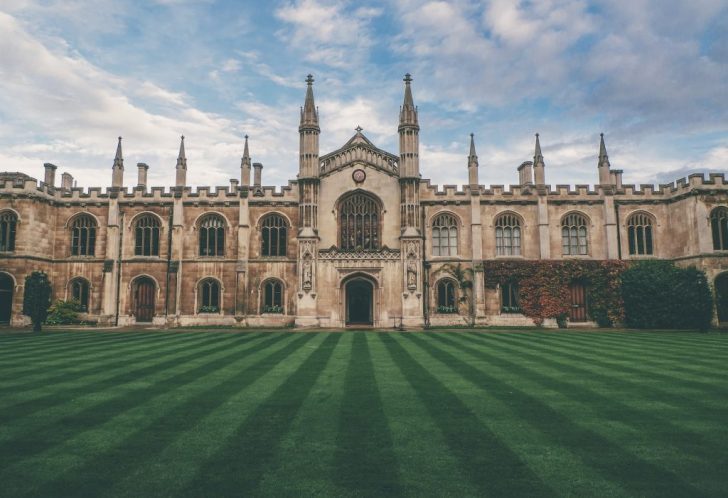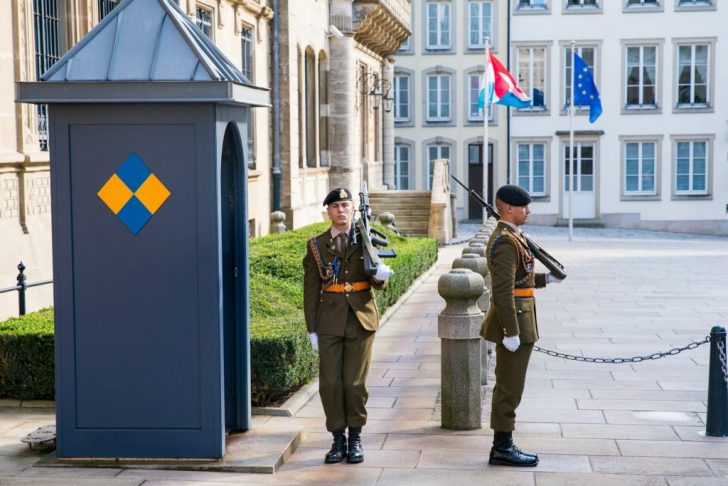10. United Kingdom
The United Kingdom, home to the world-renowned British monarchy, is a treasure trove of royal history. Queen Elizabeth II, before her passing in 2022, was the longest-reigning monarch in British history. The British monarchy is a blend of age-old traditions and modern-day glamour. Thus, making it a constant subject of global fascination.

Buckingham Palace, the official residence of the monarch in London, is a must-visit for royal enthusiasts.
9. Japan
Known as the Chrysanthemum Throne, Japan’s monarchy is considered the oldest continuous hereditary monarchy in the world. The Japanese Emperor, once revered as a god, now serves as a symbol of national unity and continuity. The current emperor, Naruhito, ascended the throne in 2019, marking the beginning of the Reiwa era.
However, the Imperial Palace in Tokyo, though mostly closed to the public, opens its doors on special occasions. Thus, it allows a rare glimpse into this secretive monarchy.
8. Saudi Arabia
A kingdom rich in oil and history, the Kingdom of Saudi Arabia is governed by the House of Saud. This monarchy is unique for its blend of traditional Islamic values and absolute royal authority.

The King of Saudi Arabia, currently Salman bin Abdulaziz Al Saud, holds significant global influence due to the country’s oil wealth and its role as the custodian of Islam’s two holiest sites.
7. Thailand
In Thailand, the monarchy is deeply revered. The late King Bhumibol Adulyadej, who passed away in 2016, was widely loved and respected. His son, King Maha Vajiralongkorn, now reigns.
The Thai monarchy is known for its rich cultural heritage and is a pillar of national identity.
6. Norway
The Norwegian monarchy is a perfect example of a modern constitutional monarchy. King Harald V, a popular figure, symbolizes national unity. The Norwegian royal family is known for their approachability and their involvement in various social causes. Thus, bridging the gap between traditional and contemporary values.
5. Bhutan
A small Himalayan kingdom, Bhutan is known for its unique approach to governance, emphasizing Gross National Happiness over Gross Domestic Product.

King Jigme Khesar Namgyel Wangchuck, known as the Dragon King, is admired for his efforts in preserving Bhutan’s culture and environment. At the same time, guiding the country toward modernization.
4. Spain
The Spanish monarchy, once embroiled in controversy, has seen a resurgence in popularity under King Felipe VI. The Spanish royal family plays a symbolic role in the nation, embodying unity and continuity.
Plus, the Royal Palace of Madrid, though no longer the royal family’s home, remains a key symbol of Spain’s royal heritage.
3. Sweden
The Swedish monarchy, one of the oldest in the world, has adapted well to the modern age. King Carl XVI Gustaf and his family are well-regarded for their contributions to social and environmental causes.
The Royal Palace in Stockholm, the monarch’s official residence, is an architectural marvel and a repository of Swedish history and culture.
2. Jordan
In Jordan, the monarchy plays a pivotal role in the country’s stability. King Abdullah II, known for his moderate approach, has been instrumental in navigating Jordan through regional upheavals.
The Hashemite kingdom is rich in history. And it serves as a bridge between traditional Islamic values and modern governance.
1. The Netherlands
The Dutch monarchy is celebrated for its down-to-earth nature and strong connection with the people. King Willem-Alexander, along with Queen Maxima, are known for their approachable and modern outlook.
The Netherlands celebrates King’s Day with great enthusiasm, with the country turning into a sea of orange, the royal color.




